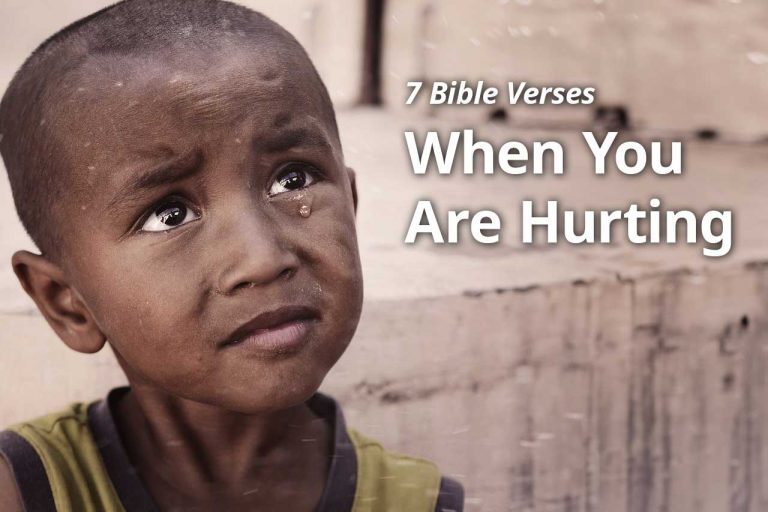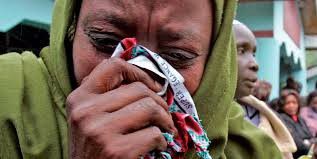Yaavɔr yɔɔsasi Yuhanna kwǝni Ma@maḏaan.
(Luuga 1:18-35)1 Mǝ Yǝcu ṯimmasi ŋejmethi ŋuuŋun ŋiccǝŋwsi ṯalaamiiza ṯuuŋwun ṯir wrii-kwuɽǝn, nɔŋw ṯamthɔ ǝzir wa nɔŋweele ethisi ǝccǝ @allima nǝ ethisi ǝccǝ bǝshirǝ tok ki-mudun-nǝ kweeŋen. 2 Na mǝ Yuhanna neŋne ki-sijin-nǝ ŋiɽaŋali ŋǝthi ŋothɽor ŋǝthi Kwɔrɔstɔ, nɔŋw usici ŋiɽaŋali ṯalaamiiz-thi ṯuuŋwun, 3 nɔŋwɔccǝŋw, “A kwɔrɔ ŋgwa kwinḏi ethi iila, alla nyǝkkici kwir ter kizǝn?” 4 Nǝsi Yǝcu ǝŋnici nɔŋwsǝccǝŋw, “Aaɽir andaci Yuhanna-ŋwɔ ŋiɽaŋali ŋa ŋimǝsi neŋne, nǝ ŋimǝsi ese tok; 5 lunduŋw limǝ avri yǝy-nǝ, yiborkon yimǝ iirǝrǝlɔ, nyiilǝŋ nyimǝ suuɽunni, liriny limǝ avri yǝninǝ, laayɔ limǝ dindi, nǝ lir lɔwaay limǝrsi ǝccǝ bǝshirǝ Inyjiilǝ. 6 Lɔrtanni kila liti linḏi ethi ṯɔgdanni nyii-ŋgi mac.” 7 Mǝ ṯalaamiiz ṯǝthi Yuhanna ɔrlacci ŋwɔḏoŋw, nǝ Yǝcu aari ibṯǝḏi ethandaci ŋwɔdɔŋw ŋiɽaŋali ŋǝni Yuhanna, nɔŋwsǝccǝŋw, “A linḏi ki-sahraa-na ethi iisa aatha? Lɔvɔɔrɔŋi lǝṯi kɔrɔn lakkisalɔ-a? 8 Ŋǝni ǝyǝ ŋuruccǝ-ŋǝsi? Ethiisa kwɔɔrɔ kwɔginna yirethi yimrina? Kila lǝṯi kenne yirethi yimrina lǝthi dɔɔnɔ kwǝthi mǝlik kwir-pa. 9 Ŋǝni ǝyǝ ŋuruccǝ-ŋǝsi par? Ethiisa kwiɽiiya? Aw nyii kwɔŋǝsi andaci, kwǝni kwuthǝmthi kwiɽiiya-la. 10 Kwundǝr-ṯǝ ŋgwɔ kwɔlɔɔthathir-gwɔ ŋifaŋali ŋaarɔŋw,
‘Iisaṯi nyii-ŋgwa kwɔmǝŋǝ usici kaavɔra kette ethi iŋnaci
ŋaaŋwɔ keereny,
kwɔŋa daɽimaci ṯaay-lɔ keereny’.
11 Nyii kwǝccǝ-ŋǝsi-mǝ ŋwɔ rerrem, ki-lizi-nǝ kila tatap lilŋithisi laaw, nɔŋweere kweere deŋgen-na mac kwuthǝmthi Yuhanna-ŋw-la kwǝni Ma@maḏaan. Laakin ŋgwa kwir kwokwɔɽony ki Ŋeeleny-na ŋǝthi ki-leere-naŋw kwundǝr-ṯǝ kwuthǝmthi ŋunduŋw-lǝ. 12 Ki-ŋwaamin-la ŋwɔnaani-ŋi Yuhanna kwǝni Ma@maḏaan mindaŋ kirem kwɔmoro, ǝṯi Ŋeeleny ŋǝthi ki-leere-naŋw bee ṯurvǝ biɽe-biɽeṯ, ǝṯisi kila lǝthi ŋwɔgwɔndɔma naŋninni ethisi aavi ŋɔmaŋi-na. 13 Nǝ ǝṯi liɽii-ŋa Sherii@a-gi kwǝthi Muusǝ andindasi, mindaŋ nǝ lɔɔmɔr iila kimaara lǝthi Yuhanna. 14 Na mǝ ǝmmini ethisi ǝmminici tǝ, e-ta elŋe ethaarɔŋw Yuhanna kwir kwǝni Iliiyyǝ kwǝkkicǝr kizǝn ethiila. 15 Kwǝthi yǝni ethi-yi neŋne ǝthɔŋw neŋne.
16 “Laakin nyii kwǝthi biɽithi lizi kɔlɔ lǝthi ŋwɔɔmɔr ŋwɔ aatha-gi? Laaɽinna kwelle kwǝṯi naanalɔ ki-limiiḏaan-la lǝthi suug, kwǝṯi ɔrnɔṯi limethgen ǝṯir-sǝccǝŋw, 17 nyiiŋǝ lǝricǝ-ŋǝsi kuɽugu neere irṯi mac; nǝ ninyaari ŋwundǝ-ŋwundǝ, laakin neere ronyine too. 18 Kaka ninḏi-gwɔ Yuhanna nɔŋweere ethne mac wala ethii nǝraarɔŋw, ‘Kwǝthi ṯigɽimǝ-nǝ ṯigii’; 19 nǝ Tɔr ṯǝthi Kwizigwunǝŋ iila nɔŋw ethne nǝ nɔŋw ii tok, nǝraarɔŋw, ‘Iisarṯi kwɔɔrɔ ŋgwɔ kwɔgiirɔ ṯiga-ṯiga kethne, nǝ ǝṯɔŋw urlǝli tok. Nǝ ǝṯir-li oro ŋɔmathi kila lǝṯi allilla ṯɔlba, nǝ lǝni ligii rɔgwori tok’. Laakin ṯǝthinǝ yǝnǝ ṯǝthi Allah-tǝ, ṯǝṯi iijini ethoro rerrem ki-ŋothɽor-na ŋǝṯɔŋwsi ǝrri.”
Muḏun kwiti kwǝthi ṯǝmminǝ mac.
(Luuga 10:13-15)20 Nǝ Yǝcu ǝrmici muḏunǝ ŋgwa kwǝṯɔ-ŋgwɔ ǝrriri ŋilima ŋuuŋun ŋɔppa-ŋɔppa, kaka niti nurlǝr-gwɔ rɔgwor-lɔ mac nɔŋwaarɔŋw, 21 “Ǝyǝwǝy ǝnnǝ ŋa kwǝni Kuuraziin, ṯurvǝ ṯɔɔŋwa! Ǝyǝwǝy ǝnnǝ ŋa kwǝni Beiṯ-sayḏa ṯurvǝ-thi ṯɔɔŋwa! Ǝŋgi ŋilim ŋǝrrinǝ daŋgal-na ǝrrini ethi Sɔɔr-ŋǝ Sayḏa-gi, ǝŋgir urlǝ rɔgwor-lɔ kinaŋw tuk; ǝŋgir kenne lishwaaliya lǝni ŋumǝru ǝŋgir akkanni yaarɔŋi naana tok. 22 Laakin nyii kwɔŋǝsi andaci, ki Laamin-la lǝthi Hɔkwɔm, a Allah kettice Sɔɔr-ŋwɔsi Sayḏa-gi hɔkwɔma wajla naana ethi hɔkwɔm-la waalɔ.
23 “Nǝ ŋa kwǝni Kafranaahuum! A kwɔnaŋna ethi allillatha leereya naana bilbil-bilbil-ǝ? Lǝŋǝ fǝtǝ aaṯisalɔ ki-jahannam-nǝ rac! Kaka ǝŋgi ŋilim ŋɔppa ǝrrini ethi Saḏɔɔm-na ǝŋgwɔŋw nannitha mindaŋ ǝŋgi kirem oro. 24 Laakin nyii kwɔŋǝsi ǝccǝŋw, ki Laamin lǝthi Hɔkwɔm, ǝri kettice Saḏɔɔm-ŋwɔ hɔkwɔma wajla naana ethi daŋgal-la.”
Ilar naaniny-gwɔ ǝgwɔ kaṯṯɔ wǝn.
(Luuga 10:21-22)25 Nǝ ki-lɔɔmɔr-la ṯǝ kila nǝ Yǝcu aarɔŋw, “Papa kwir Kweeleny kwǝthi leere-na nǝ wurǝyu tok! Nyii kwǝccǝ-ŋǝ shukran kaka mǝsi-gwɔ ruwǝnnicǝ-lɔ kila liti lɔɔɽɔ kii mac, ŋa ŋuluccǝsǝ-ŋǝsi lizi kila lɔɔɽɔ kii nǝ lilŋiṯṯisinǝ tok. 26 Imba Papa a kwaamina ethi ǝrrini ṯǝŋw. 27 Papa kwiinyi kwɔmǝ-nyii kettice kwomne-lɔ tatap ki-rii-na riinyi; nɔŋweere kweere mac kwilŋithi Tɔɔrɔ illi Papa dak, nǝ nɔŋweere kweere mac kwilŋithi Papa-ŋwɔ illi Tɔr dak, nǝ kweere kwǝṯi Tɔr naŋni ethi ruwǝnniccǝ-lɔ.
28 “Ilar ŋaaŋa kila tatap lǝthi ṯurvǝ nǝ lappa ṯɔɔvi ṯinii tok, mindaŋ ŋǝsi kǝṯṯini wǝŋ. 29 Dimmǝr ŋwuuɽi ŋwiinyi, mindaŋ aari @allima naaniny-gwɔ; kaka niiɽǝnǝny-gwɔ, nǝ nǝjlinnǝny-gwɔ ki-rogɽo tok, mindaŋ a kaṯṯasi ṯigǝṯṯinǝ wǝŋ. 30 Kaka nɔrɔ-gwɔ ŋwuuɽi ŋwiinyi heyyin, nǝ ṯɔɔvi ṯiinyi nɔŋw ǝwri tok.”
John the Baptist
(Luke 7.18-35)1 After Jesus had finished instructing his twelve disciples, he left and began teaching and preaching in the towns.
2 John was in prison when he heard what Christ was doing. So John sent some of his followers 3 to ask Jesus, “Are you the one we should be looking for? Or must we wait for someone else?”
4 Jesus answered, “Go and tell John what you have heard and seen. 5 The blind are now able to see, and the lame can walk. People with leprosy are being healed, and the deaf can hear. The dead are raised to life, and the poor are hearing the good news. 6 God will bless everyone who doesn't reject me because of what I do.”
7 As John's followers were going away, Jesus spoke to the crowds about John:
What sort of person did you go out into the desert to see? Was he like tall grass blown about by the wind? 8 What kind of man did you go out to see? Was he someone dressed in fine clothes? People who dress like that live in the king's palace. 9 What did you really go out to see? Was he a prophet? He certainly was. I tell you that he was more than a prophet. 10 In the Scriptures God says about him, “I am sending my messenger ahead to get things ready for you.” 11 I tell you no one ever born on this earth is greater than John the Baptist. But whoever is least in the kingdom of heaven is greater than John.
12 From the time of John the Baptist until now, violent people have been trying to take over the kingdom of heaven by force. 13 All the Books of the Prophets and the Law of Moses told what was going to happen up to the time of John. 14 And if you believe them, John is Elijah, the prophet you are waiting for. 15 If you have ears, pay attention!
16 You people are like children sitting in the market and shouting to each other,
17 “We played the flute,
but you would not dance!
We sang a funeral song,
but you would not mourn!”
18 John the Baptist did not go around eating and drinking, and you said, “That man has a demon in him!” 19 But the Son of Man goes around eating and drinking, and you say, “That man eats and drinks too much! He is even a friend of tax collectors and sinners.” Yet Wisdom is shown to be right by what it does.
The Unbelieving Towns
(Luke 10.13-15)20 In the towns where Jesus had worked most of his miracles, the people refused to turn to God. So Jesus was upset with them and said:
21 You people of Chorazin are in for trouble! You people of Bethsaida are in for trouble too! If the miracles that took place here had happened in Tyre and Sidon, the people there would have turned to God long ago. They would have dressed in sackcloth and put ashes on their heads. 22 I tell you on the day of judgment the people of Tyre and Sidon will get off easier than you will.
23 People of Capernaum, do you think you will be honored in heaven? You will go down to hell! If the miracles that took place in your town had happened in Sodom, it would still be standing. 24 So I tell you on the day of judgment the people of Sodom will get off easier than you.
Come to Me and Rest
(Luke 10.21Luke 22)25 At that moment Jesus said:
My Father, Lord of heaven and earth, I am grateful that you hid all this from wise and educated people and showed it to ordinary people. 26 Yes, Father, this is what pleased you.
27 My Father has given me everything, and he is the only one who knows the Son. The only one who truly knows the Father is the Son. But the Son wants to tell others about the Father, so they can know him too.
28 If you are tired from carrying heavy burdens, come to me and I will give you rest. 29 Take the yoke I give you. Put it on your shoulders and learn from me. I am gentle and humble, and you will find rest. 30 This yoke is easy to bear, and this burden is light.


